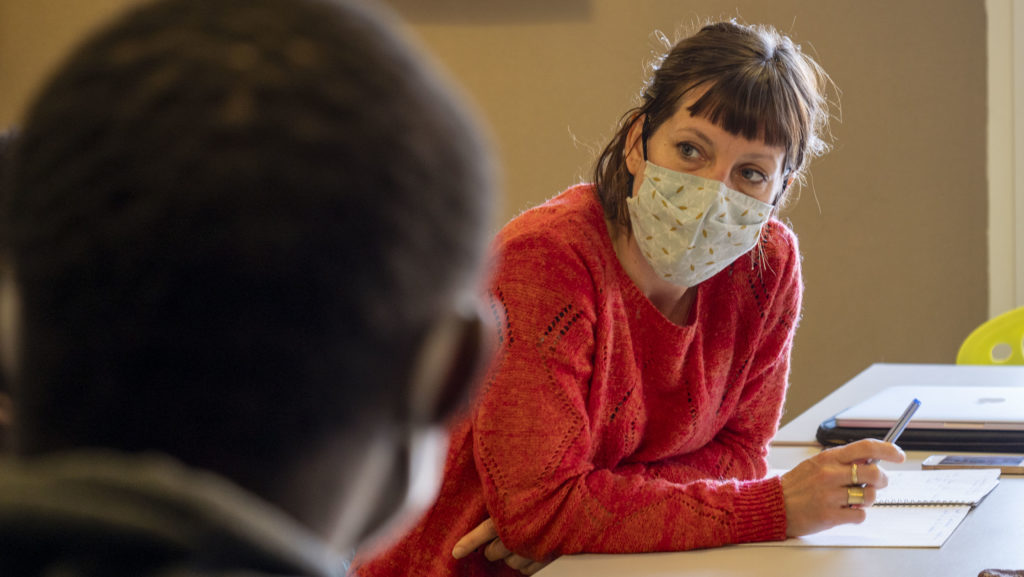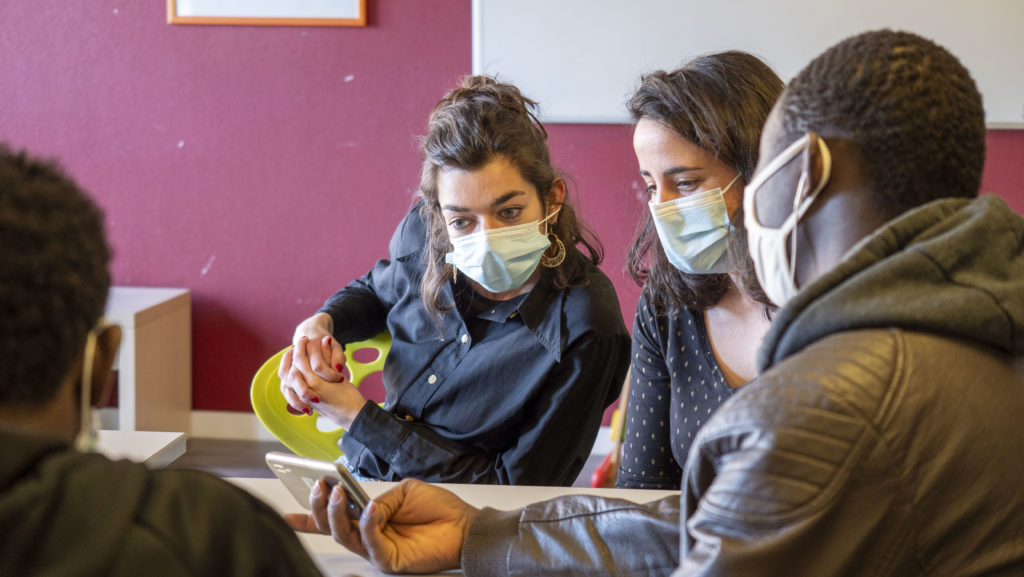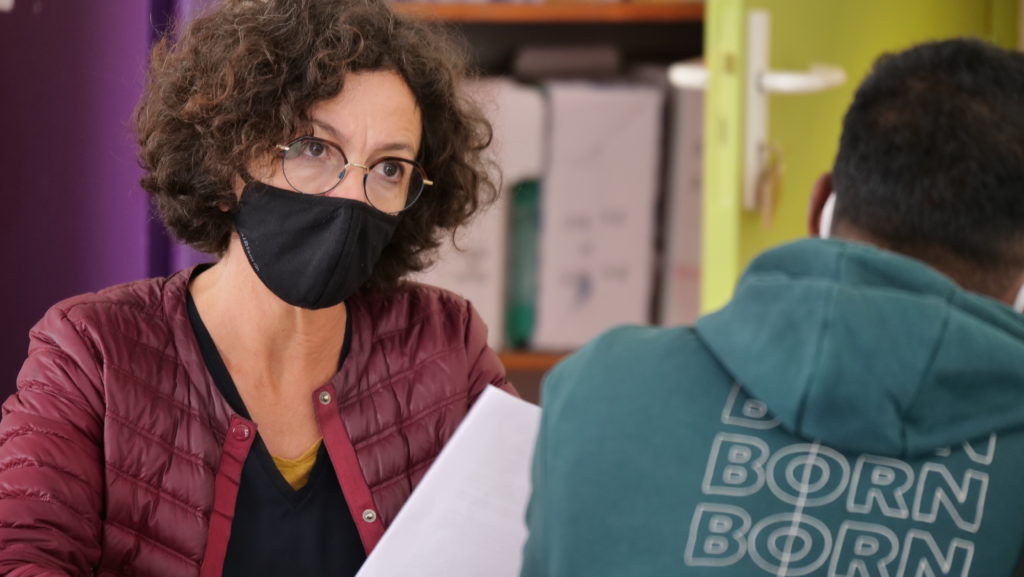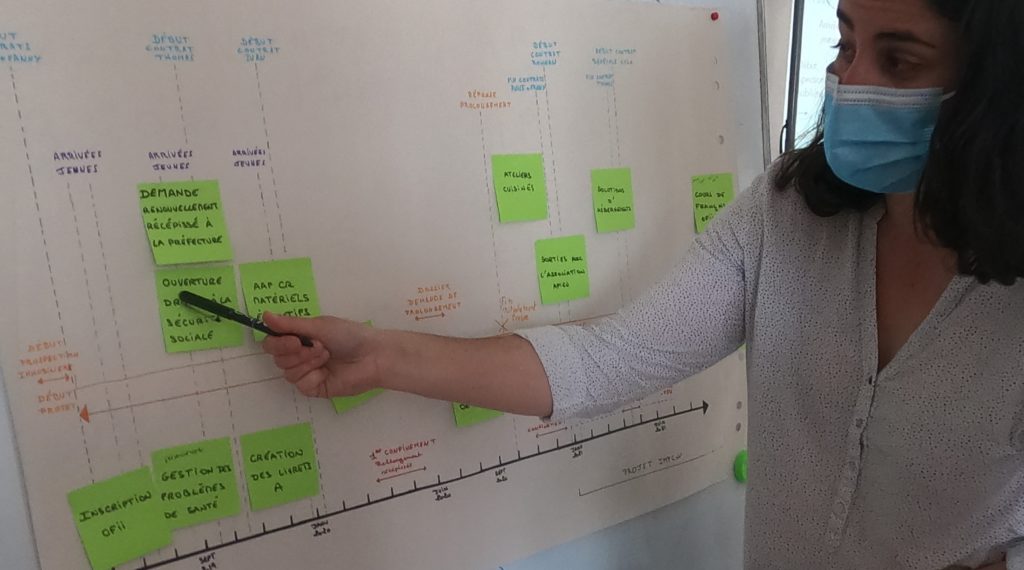IMMERSION IN THE SUPPORT STRUCTURES OF MIGRANT POPULATIONS IN FRANCE: MIGRANT, BENEVOLENT AND PROFESSIONAL PEOPLE FACING SARS-COV-2 (IMPCoV Project)
« Co-build with the actors met in the Montpellier region, new reflections on the ways to act within the system of management of migrant populations ».
Design the management of migrant populations in times of crisis
Government measures taken to address the health emergency raise questions about the treatment received by migrant populations in metropolitan France. This situation increases the vulnerabilities of migrants, feelings of loneliness and isolation, but also of fear in the face of control of exit permits and residence permits.
Through the development of a participatory method, this study documents the management system of migrant populations in France. Through the focus of the Covid-19 health crisis, this study aims to understand how the measures taken to fight the virus have socially and economically affected migrants and the professionals and volunteers present at their side.
Participatory research at the heart of three associative schemes
The survey takes place in Montpellier with three partner actors, La Croix-Rouge, La Cimade, RESF34, the employees and volunteers of these structures as well as the accompanied migrant public.
The approach adopted is participatory, meaning that our research team and associations are co-involved in the process of producing data and knowledge. For this, we mobilize methods of collective animations such as focus groups or participatory workshops.
The survey work is confronted with the difficulties inherent in conducting a research project in times of health crisis. For example, cases of Covid-19 at migrant locations have blocked access to the grounds and scheduled activities at certain times.
Capitalising on the experiences of support structures during the pandemic
Based on the analysis of the management of the pandemic by the partner structures, the survey work allows employees and volunteers to express themselves and to capitalize on their lived experiences. The objective is threefold:
- raise the need to take into account the health risk in the development of the actions and missions of the associative structures that help migrant populations
- discuss their role and their place within the increasingly restrictive system for migrant workers in France
- think about new practices and methods to reduce the vulnerability of employees and volunteers
Contribute to research on the asylum and reception system of migrant populations
By analysing a moment of tension, induced by the management of the SARS-CoV-2 virus, this research proposes to coTo build with the actors met in the Montpellier region new reflections on the ways of acting within the system of management of migrant populations and in the framework of their respective missions and activities.
By crossing the different temporalities in which the studied populations are inserted (temporality of the health crisis, migration and integration trajectories in France, associative structures and projects they develop), the objective is to determine the moments of inflection, break-ups and continuity, which impact the missions and actions of partner structures and the management of migrant populations. This research is at the crossroads of migration studies and the sociology of associations.
- DCIM100GOPROGOPR1591.JPG
Biography
Anaïs Trousselle first trained as an agro-development engineer (Istom). After a Master 2 Research «Sustainable Development and Development» at the University Paul-Valéry (Montpellier), she completed a PhD in geography and spatial planning. At the end of 2019, she defended a thesis entitled Une géographie de la multi-localisation familiale. Nicaraguan ruralities to the test of mobility (case of the Río Negro valley)». She then founded NARRAU, specialized in action research in the human and social sciences, whose objective is to tell the social realities of populations with the rigour of the scientific approach, and to transfer the results to accompany the ways of acting.
The research team also includes:
Itane Lacrampe-Camus, Geography Researcher, associated with l’UMR ART-Dev and independent researcher within the project NARRAU
Geneviève Cortes, Professor of Geography at Université Paul-Valéry Montpellier 3
Cécile Jouhanneau, Lecturer in Political Science at the Université Paul-Valéry Montpellier 3
Banner: ©Victor Lacken, Red Cross Red Crescent Magazine; Photo Researcher: @NARRAU; Photo Gallery: ©IMPCoV Project




